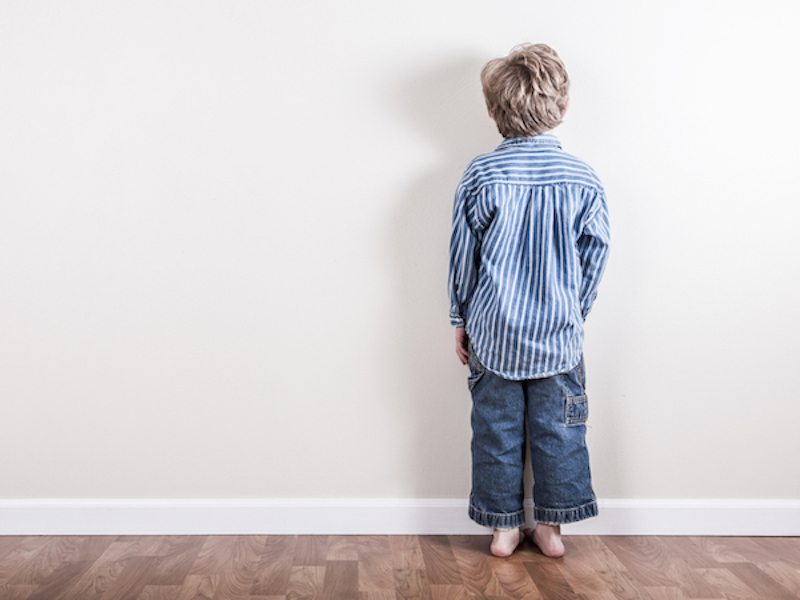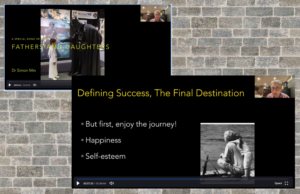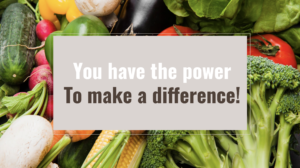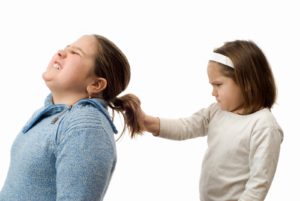Articles
The Consequence of Consequences

We often say that children need to learn the consequences of their actions. What do we mean by “consequence”? We tend to view “consequences” as the various punishments that we inflict on a person who does something wrong. By the same reasoning, people who go unpunished have not “experienced the consequences of their actions.”
All actions, however, good or bad, have consequences (Mirenda and Lucyshyn, 2007).
For instance, when I flick the light switch to the “on” position, the consequence is that I have light. Similarly, when Johnny hits his sister, the consequence might be that he gets a time out. The environment around us (the physical environment, people present etc.) reacts to our actions. Even “nothing” happening is actually a consequence.
So why does this matter? Consequences are the avenues by which we learn whether to do an action again. Past experience tells me, when I need light I can flick the light switch on. In the same way, Johnny can learn that hitting his sister results in a time out. In the case of the “unpunished”, they indeed “experience the consequences of their actions”: when I (insert bad behaviour) nothing happens, or, when I (insert bad behaviour) my parents don’t care. Guess what this child expects when he gets the urge to behave badly?
So since we know that actions ALWAYS have consequences, we can use this knowledge to teach our children what is permitted and what is not. We have to make sure that bad behavior gets bad consequences, and good behavior gets good consequences.
What about “punishment”? Just like“ consequences”, “punishment” implies something unpleasant happening after a person does something wrong.
However, proper use of the word “punishment” refers to a consequence that stops or reduces a particular behaviour (Mirenda & Lucyshyn, 2007).
If a consequence results in a person continuing the bad behaviour, it is not a punishment, even if we are talking about “time out” or taking away a toy.
One difficulty with discipline is the struggle to keep our emotions from negatively influencing how we discipline. After hearing the little word “no” yet again, one can be almost delirious with rage. In grade 12 history, we spent time studying World War Two. We learned that the Germans used a method of warfare aptly named “blitzkrieg”. The US army has used similarly named “Shock and Awe” tactics in modern times. This strategy involves mobilizing everything you have to immediately overwhelm any opposition.
Sometimes my husband and I parented this way. We wanted our child to do as she was told. After all, we are the parents, we are the bosses. We would throw every kind of “punishment” at problem behaviour, and hope that something would work. Or we would throw more and more of the same punishment with increasing intensity. Sometimes, something worked. But it is like playing horseshoes in the dark. One of your horseshoes might land in the right spot, but in the meantime, you may have made a mess of the yard, and it can take a very long time.
A few years ago, I attended a class where the topic was punishment. One of the first things we discussed were reasons we should NOT use punishment. One that really stood out was “It makes me feel better”. I remember sitting there and feeling suddenly guilty about the times when this applied to my actions. The reason for giving out a punishment is simple. You want to reduce or eliminate a behaviour. Ultimately, however, you enforce the rules because you love your kids. You want them to develop into good people. If you’re unable to work from this, it is time to stop (if you can), breathe and wait until you can rethink the punishment with clear goals in mind.
When disciplining, this is where the adage “work smarter, not harder” applies. How do we stop playing horseshoes in the dark? Well, we not only want to shed light on the situation, we want to be able to walk right up to the mark and simply place the horseshoe on the right spot. This is why it is so important to consider what the child was trying to achieve with her bad behaviour, even if it is just a split second before choosing how to react. For instance, if a child is refusing to do homework, “time out” might not be the best route, since this actually results in more time without homework being done (the child gets what she wants). This might be a good time to take away a privilege (one that matters to the child) since in your family, privileges are contingent on finishing homework.
On the other hand, sometimes our emotions betray us the other way. We allow things to go “because it’ll be too hard to punish.” “He’ll get mad at me.” Or “She’ll hate me”….When things go unpunished, the behaviour continues and the child gets used to it. The longer it goes on, the harder it is to change a behaviour. Do not worry, it can still be changed. However, you will have to pay the price.
The first thing that happens, when you put your foot down, is there are tears. And more tears. And then “I hate you”. Then screaming. Kicking and screaming. Kicking, screaming, and possibly throwing. But the research shows that it ALWAYS ends (Mirenda & Lucyshyn, 2007).
If you’ve looked at what’s been going on, and you’re doing what needs to be done, persevere. It will get better. If you’re going to put your foot down, go all the way. If you give in again while going through this, the next time there will be more kicking and screaming to overcome.
So with all this in mind, here are some tips that I have tried to keep in mind as I develop as a parent:
- Safety first. In spite of all I’ve said, if the situation is dangerous, do what you need to do to put a stop to it. If Michael is playing with fire, it is not the time to “take a moment.”
- If the situation does not involve #1, breathe. If possible, take three deep breaths before dealing with problem behaviour.
- Decide what the child was trying to get out of her behaviour. Choose punishment accordingly. If possible, connect the punishment to the behaviour. For example, if Annie breaks her sister’s favorite toy, perhaps she should have to give up her allowance until a replacement can be purchased.
- Tone matters. Punishment can be more effective when you speak in calm tones and don’t needlessly raise your voice.
- Discuss consequences with your children. It is very helpful when children know ahead of time what to expect in terms of punishment and what kind of actions will result in punishment.
As Ray Guarendi (1985) emphasizes, when it is time to let our children go out there in the world, we don’t want others, who certainly don’t care for our children like we do, having to do the discipline.
Unfortunately, parents rarely get the chance to ‘practice’ their discipline skills before children come into their lives. One day, seemingly out of nowhere, our children misbehave and we have to react. At this point, sometimes all we have prepared is our “serious face” and a spot for “time out”. That’s okay… Every situation is an opportunity to rethink and try again. The key is not waiting until the next time to figure out what you want to do.
Remember also, punishment only goes so far. Children need to be taught good behaviours to
replace bad behaviours. Otherwise they may find other bad behaviours to fill the void. It is also our duty as parents to set rules for our children and enforce them. It is part of the process of creating a loving, peaceful home. We want to make sure we are the ones that provide discipline for our children, because we are the ones who love them.
References
Guarendi, Ray (1985) You’re a better parent than you think. Prentice Hall, New York, New York
Mirenda, Pat, & Lucyshyn, Joseph, Class notes EPSE 532, 2007.
Michelle Nix holds Bachelor degrees in chemistry and education, as well as a Master’s degree in Special Education.







